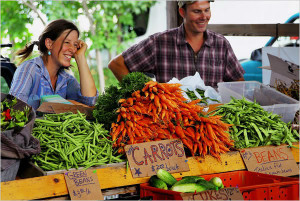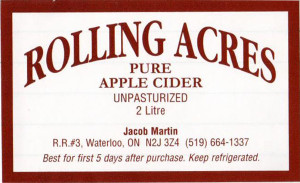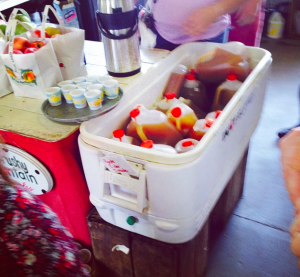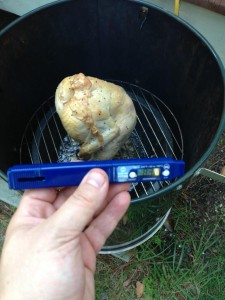Patricia Miller of the State University of New York at Albany writes in her Doctor of Public Health dissertation that within the United States there are over 8,000 farmers markets, that sell directly to consumers. New York State has the second-largest number of markets, at 637, with the capital region host to 114 markets.
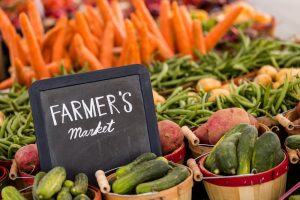 Over the years the selections of offerings have grown to include not only produce but ready-to-eat foods, eggs, dairy products, crafts, beer, and wine. The increasing popularity of farmers markets coupled with inadequate regulatory oversight of these markets, can contribute to incidences of foodborne illnesses.
Over the years the selections of offerings have grown to include not only produce but ready-to-eat foods, eggs, dairy products, crafts, beer, and wine. The increasing popularity of farmers markets coupled with inadequate regulatory oversight of these markets, can contribute to incidences of foodborne illnesses.
The Centers for Disease Control identified 95 foodborne illness outbreaks in the United States potentially associated with fairs, festivals, and temporary mobile services from 1988-2007, which resulted in almost 4,000 illnesses, including 144 hospitalizations (Centers for Disease Control, 2008). Of these markets, six are held year-round.
This research undertook a needs assessment to identify gaps in food safety as it related to compliance with regulations required by federal, state, and local government by farmers markets and their vendors. This was a multimethod study utilizing content of each farmers markets rules compared to regulations, direct observations of vendor behaviors, and data collection through observation of physical characteristics of the markets, and interviews with market managers. Market compliance was measured by analysis of market rules to key rules and regulations required through the Federal Food Code, and by the New York State Temporary Food Service Establishments Regulations. These rules included adherence to minimal cooking of foods, maintaining and monitoring temperatures of foods, hand hygiene requirements, prevention of cross-contamination, and storage of food. These regulations address transportation of food to the markets, into the markets, display of food, and serving of food.
Data collection through observation of each markets was done to assess market facilities, and direct observations were made of vendors during market operations on multiple occasions. Results showed many markets lacked clearly defined rules, and resources, including handwashing stations, as regulated, were not in evidence. Observational data collection showed that these markets did not comply with the New York State Department of Health Temporary Establishments Regulations and that the vendor behaviors did not meet food code requirements. In addition, this study looked to identify facilitators and barriers to safe food handling behaviors. A lack of handwashing facilities and thermometers were found to be barriers to safe food handling at these markets.
While implementing more rules or changing policies may improve these behaviors, enforcement of the required rules would be a better method to decrease these barriers. Inspection by local authorities may improve compliance to regulations as may providing resources to the vendors.


